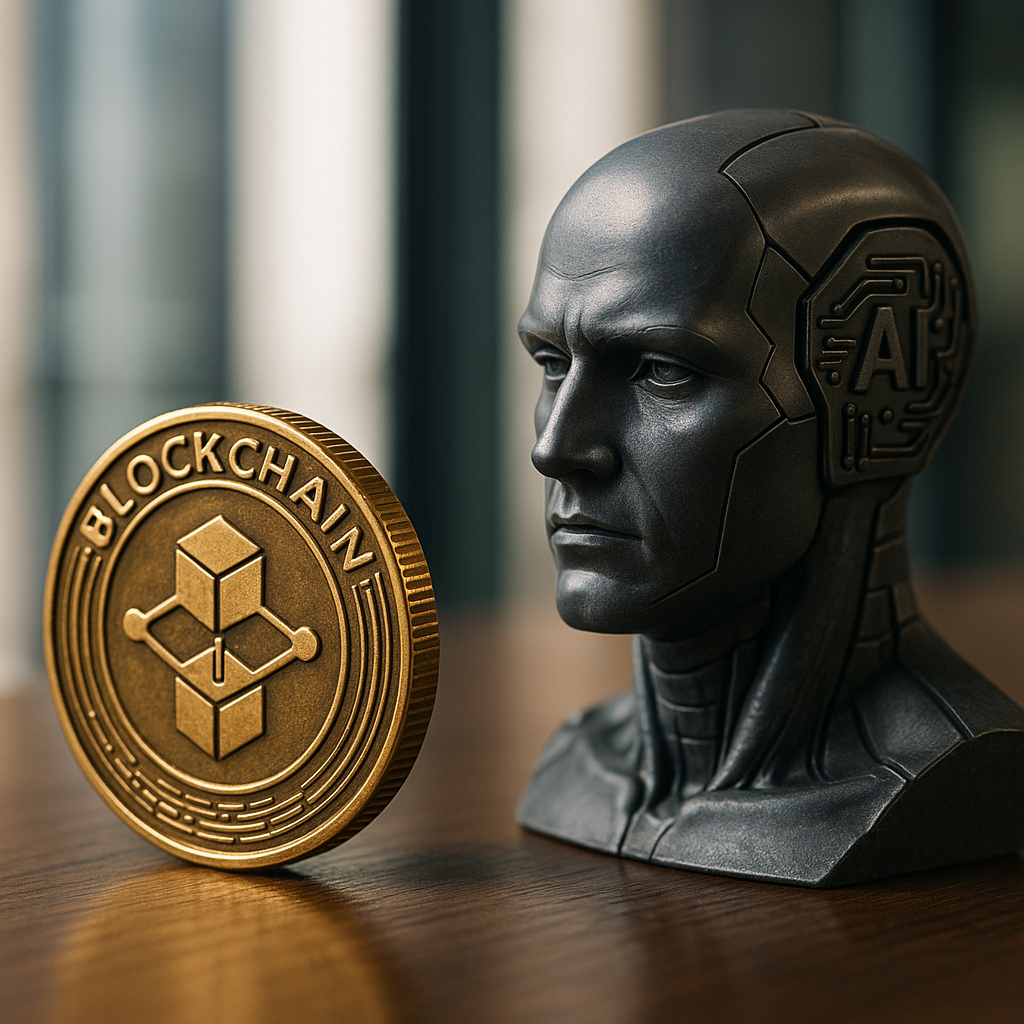Blockchain steps in: The next frontier for ethical AI governance
The researchers argue that blockchain’s combination of decentralization, cryptographic security, and smart contract functionality positions it as a promising tool for enforcing ethical AI behavior across all levels of implementation.

Artificial intelligence (AI) is evolving at an unprecedented pace, and so are the concerns about its ethical alignment and trustworthiness. A new study explores whether blockchain, the technology behind digital currencies, could provide the missing link in ensuring AI systems remain transparent, secure, and aligned with human values.
Their research, Is Blockchain the Future of AI Alignment? Developing a Framework and a Research Agenda Based on a Systematic Literature Review, published in the Journal of Cybersecurity and Privacy (2025), offers a comprehensive review of blockchain’s potential role in reshaping AI governance.
How can blockchain strengthen AI alignment?
The authors reviewed over 7,000 records, narrowing down to 46 studies that directly addressed blockchain’s role in AI alignment. Their findings reveal that blockchain’s decentralized and immutable nature could address critical weaknesses in current AI systems, particularly in ensuring ethical behavior, enhancing transparency, and building public trust.
AI alignment refers to designing AI systems that act according to human values, ethical principles, and societal norms. Traditional approaches to AI ethics have been hampered by opacity, lack of accountability, and the risk of manipulation. Blockchain, with its secure and tamper-proof ledger, offers a mechanism for documenting AI decision-making processes, enabling traceability, and verifying compliance with ethical standards.
The study introduces a three-tier taxonomy for understanding blockchain’s potential in AI alignment: micro (technical level), meso (application-specific level), and macro (societal and regulatory level). At the micro level, blockchain can embed alignment mechanisms directly into AI algorithms. At the meso level, it ensures ethical practices in sector-specific applications such as healthcare or finance. At the macro level, it enables global cooperation and regulatory harmonization by providing transparent audit trails and verifiable compliance mechanisms.
The researchers argue that blockchain’s combination of decentralization, cryptographic security, and smart contract functionality positions it as a promising tool for enforcing ethical AI behavior across all levels of implementation.
What challenges stand in the way of blockchain-enabled AI ethics?
While the study highlights blockchain’s strengths, it also identifies significant obstacles that must be overcome for this technology to become an effective solution. Scalability remains a major technical hurdle. Current blockchain infrastructures struggle to handle the massive data volumes and rapid processing requirements associated with real-time AI systems.
Privacy concerns present another challenge. While blockchain ensures transparency, its immutability can conflict with privacy regulations, such as the right to be forgotten under laws like the GDPR. The authors warn that balancing transparency with privacy will require innovative hybrid solutions that selectively disclose data while preserving individual rights.
The study also points to the lack of global standards and interoperability as a key barrier. AI governance already suffers from fragmented regulations, and blockchain integration risks adding another layer of complexity without a cohesive international framework. Without standardized protocols, cross-border AI operations could face compliance issues and inefficiencies.
Organizational resistance is also noted. Implementing blockchain solutions often demands significant financial investment and cultural change, as companies must adapt to decentralized models of control and decision-making. Additionally, biases encoded in AI algorithms could still persist or even be amplified if they are immutably recorded on blockchain ledgers.
These challenges underscore the need for a thoughtful approach to integrating blockchain with AI, ensuring that technical innovation does not outpace ethical safeguards.
What framework and research agenda do the authors propose?
To address these challenges, the authors present a blockchain-based AI alignment framework that operates across technical, sectoral, and societal dimensions. The framework envisions blockchain as both a verification tool and a governance mechanism, ensuring AI systems remain accountable and ethically compliant.
The team proposes multi-layered solutions combining blockchain with complementary technologies such as federated learning, differential privacy, and explainable AI. These integrations would enhance security while maintaining compliance with ethical and privacy requirements.
Their research agenda calls for several priority actions:
- Developing cross-sector interoperability to ensure blockchain solutions can work seamlessly across industries and jurisdictions.
- Creating standardized metrics to evaluate ethical AI performance on blockchain-enabled systems.
- Building adaptive governance models capable of evolving alongside technological advancements.
- Exploring sustainability considerations, as blockchain’s high energy consumption could conflict with environmental goals.
- Promoting international cooperation to establish harmonized regulations and shared best practices.
By addressing these areas, the researchers argue that blockchain can move from a promising concept to a practical, scalable tool for securing AI alignment.
- READ MORE ON:
- blockchain for AI alignment
- ethical AI governance solutions
- blockchain and artificial intelligence ethics
- trust and transparency in AI
- AI compliance and blockchain integration
- blockchain applications in AI policy
- blockchain solutions for responsible AI Ask ChatGPT
- AI governance through blockchain technology
- FIRST PUBLISHED IN:
- Devdiscourse









